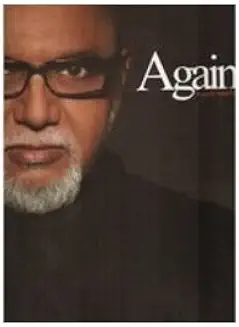In the constellation of Indian English poets, Pritish Nandy occupies a distinctive orbit—flaring, subversive, and deeply embedded in the socio-cultural soil of modern India. While his poems are composed in English, the sensibility they project—the idiom, the anxiety, the desire—is unmistakably Indian. His language is English, but his experience is irreducibly subcontinental. This seeming paradox lies at the heart of his poetic voice, one that reclaims English not as the colonizer’s tongue, but as a lived vernacular, richly accented by the emotional cadences of Indian life.
English in India has long been both a tool and battleground. Post-independence, it was the language of legal systems, higher education, and elite communication—often divorced from ground realities. In literature, too, early Indian English poets like Nissim Ezekiel or Dom Moraes leaned toward a transnational, often Westernized idiom. Nandy disrupted this trajectory.
His debut volume, “Of Gods and Olives” (1967), signaled a raw, impetuous force—a poet unafraid to make English stammer with Indian longing, lechery, devotion, and disillusionment. His subsequent collections carried a sensibility rooted in the city (particularly Bombay/Mumbai), in mythic memory, and in a sexuality unshackled from Victorian prudery.
Take this line, for instance:
“I have watched women
cooking lentils
in brass pots
and making love
with equal indifference.”
Here, the mundane chore of dal preparation shares space with erotic nonchalance. The flatness of the tone masks deep irony—a feature recurrent in Indian narrative traditions, from Kabir’s couplets to modern Hindi cinema. The economy of the image is Western, but the cultural texture—the brass pots, the casual intimacy—is entirely Indian.
What makes Nandy’s poetry “Indian” is not just its topicality, but its syntax of sensibility. He does not write about India; he writes from within it. His English is urgent, clipped, almost breathless—more spoken than written. It reflects the rhythm of Indian speech, mimicking the hesitations, overlaps, and emotive spikes of conversations that unfold in trains, tea shops, or smoky living rooms.
In the poem “Calcutta If You Must Exile Me,” Nandy writes:
“Calcutta
if you must exile me
wound my lips
before I go…”
The jagged line breaks echo the cracks in the city itself. The emotional register is personal, but the invocation of place—Calcutta as both home and tormentor—is a trope familiar to diasporic Indian literature. Yet Nandy is not diasporic. His exile is metaphorical, urban, existential.
The poem continues:
“...let your weather
discover my hideouts
your rains
my buried metaphors…”
This is not the Bombay of Naipaul or Rushdie, cloaked in magical realist haze or postcolonial nostalgia. This is a city you can smell, sweat through, bleed with. His metaphors may lie buried, but they bear unmistakable Indian humidity.
One of the sharpest critiques levelled against Nandy’s poetry has been its blatant eroticism. Feminist critics in the 1970s accused him of reducing women to objects, catalogued through voyeuristic metaphors. But to read his sexual imagery simply as male gaze is to miss the deeper cultural encoding.
His eroticism is not borrowed from Western literary decadence but echoes the sensuous abandon of Indian classical literature—Kalidasa’s Meghaduta, Jayadeva’s Gita Govinda, and later, even Urdu poetry’s languid yearning. In Nandy’s hands, eroticism becomes a vector of spiritual and emotional inquiry.
From “Riding the Midnight River”:
“You smell of neem
and milk
and Mondays I have lost.”
The woman’s body is not just sensual; it is mnemonic. The reference to neem evokes traditional Indian healing, milk suggests nurturing, and Mondays—linked to Shiva worship—layer the sensual with the sacred. The syntax is minimalist, yet the referential web is deeply Indian.
In the post-independence context, Indian writers were burdened with a peculiar anxiety: to write in English was to seem inauthentic, and to write in vernaculars was to be unread by the “world.” Nandy disrupts this binary by inserting the vernacular within English.
His English is not received pronunciation—it is streetwise, cosmopolitan, punchy. Words like “chai,” “puja,” “bidi,” “filmi,” or names of gods and rituals appear without italics or footnotes. He does not translate India into English for Western palates. He injects English with Indian flavor, unapologetically.
In “The Poetry of Place,” he writes:
“Where my verses burn
like agarbattis in old tenements and lovers leave behind
their lungis
like faiths they forgot to wear.”
The imagery of agarbattis (incense sticks), lungis (a traditional Indian garment), and the transience of faith are deeply local. Yet they live fluently within English, without linguistic apology. This is English vernacular made Indian language—functional, emotive, textured.
In “Staying On,” he writes:
“I do not believe in gods anymore
or godmen
or their automobile processions but I still light a lamp
on Diwali
not for them
but because my mother did.”
This is quintessentially Indian modernity: secular skepticism entwined with inherited rituals. The act of lighting a lamp isn’t religious obedience; it is emotional ancestry. The language is clean, secular, vernacular. And yet the emotional register is ancient and rooted.
Pritish Nandy is not a poet of grand pronouncements or academic metaphors. He is, instead, an urban shaman—chronicling the loneliness, lust, and late-night longings of a city that refuses to sleep. His India is not the village of Tagore or the spiritual abstraction of Radhakrishnan. It is raw, sweaty, overpopulated, half-drunk—and yet, undeniably alive.
His poetry remains English by structure but Indian by soul. The metaphors may not come wrapped in Vedic symbolism, but they reek of local memory, of chai cups left half full, of political slogans, street corners, receding rains. It is a language molded not just by grammar but by geographies of belonging.
To describe Pritish Nandy’s poetry as “English vernacular but Indian language” is not a paradox—it is a summation. His verse proves that language need not belong to a nationality, and that poetry, like identity, is porous. Nandy didn’t borrow English; he bent it, browned it, and made it speak in local cadences.
He offers not just poems, but proof: that English in Indian hands does not dilute experience—it distills it differently. And in that difference, something extraordinary happens. The foreign tongue becomes a native whisper.
Related Reading
![]()


